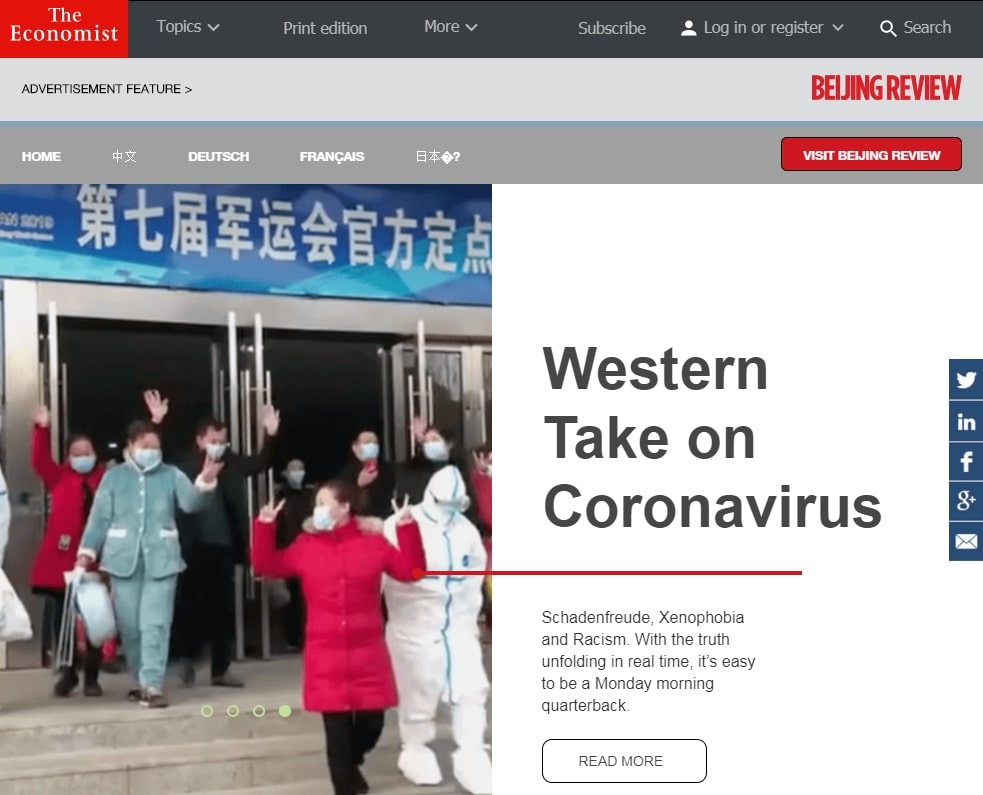By Choekyi Lhamo
DHARAMSHALA, AUG 12: The Economist, one of the leading newspaper, has reportedly taken down advertisement features paid by Chinese state media. The London-based activist organisation, Free Tibet previously launched a campaign against The Economist and The Wall Street Journal to sever their ties with the propagandist state media. The petitions collected over 2300 signatures.
The newspaper regularly featured paid content from the Chinese state-sponsored paper called Beijing Review under the section “China Focus” since 2018. Free Tibet said on Tuesday that though it is unclear if the advertisements will continue but The Economist has stopped the features in the recent editions.
The paid content from the “China Focus” section included advertorials praising President Xi Jinping’s leadership in response to COVID-19 and another piece that attacked Western news outlets for ‘misreporting’ China’s handling of the pandemic. The New York Time, The Washington Post and The Telegraph had previously dropped their Chinese state-backed content from their print and online editions.
The majority of the paid advertisements have been produced by China Daily and Beijing Review which are outlets controlled and funded by the Chinese Communist Party (CCP). These features can be found in newspapers across Australia, France, Germany, Japan, UK, USA among others. Beijing Review regularly runs propaganda on Tibet and East Turkistan.
John Jones, Campaigns Manager at the Free Tibet, wrote that the move should be hailed as a major victory, “Chinese state media outlets like Beijing Review and China Daily have been spewing CCP propaganda for decades.
“As China robs Tibetans and Uyghurs of their land and their rights and muzzles their attempts to communicate with the wider world, these propaganda rags fill up the space, perpetuating lies that the invasion of Tibet has brought about democracy or that the internment of Uyghurs in concentration camps is a way of helping them. . . [Now] we celebrate a massive victory for Tibet, we turn our attention to other newspapers like The Wall Street Journal.”











2 Responses
Congratulations “FREE TIBET” for this success. Unfortunately, a lot of editorial content on THE ECONOMIST is anti democracy and pro Communist. But yours is a victory worth celebrating.
None of The Economist articles have authors assigned to them. Take a good look at who makes up the board of The Economist. Things are not always the way they appear. A failed China is not beneficial to anyone. Internationally, it would seem that a failed independent Tibet was an easier pill to swallow than a failed China over the course of last few decades. Given that scenario, perhaps best to think of the best way to go forward without causing undue difficulties for the Tibetans in Tibet. Geopolitically, obviously India also has a stake in driving the narrative. But the again the story of Kashmir has not been particularly worthy of riding the high horse either.